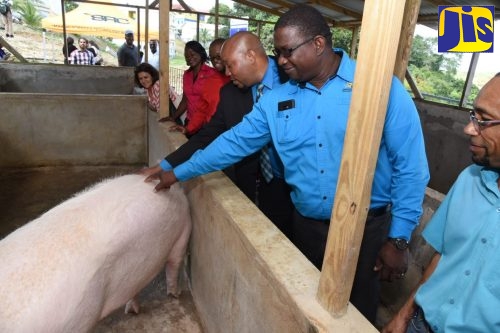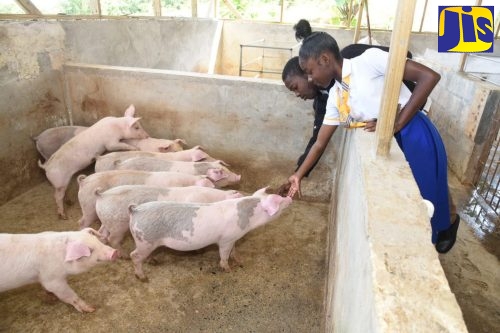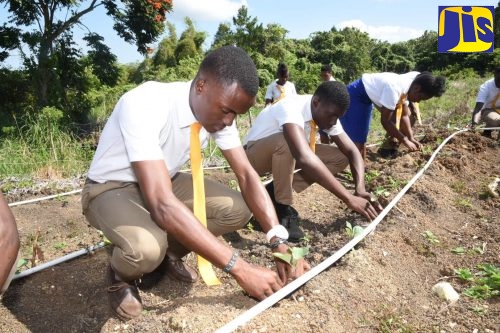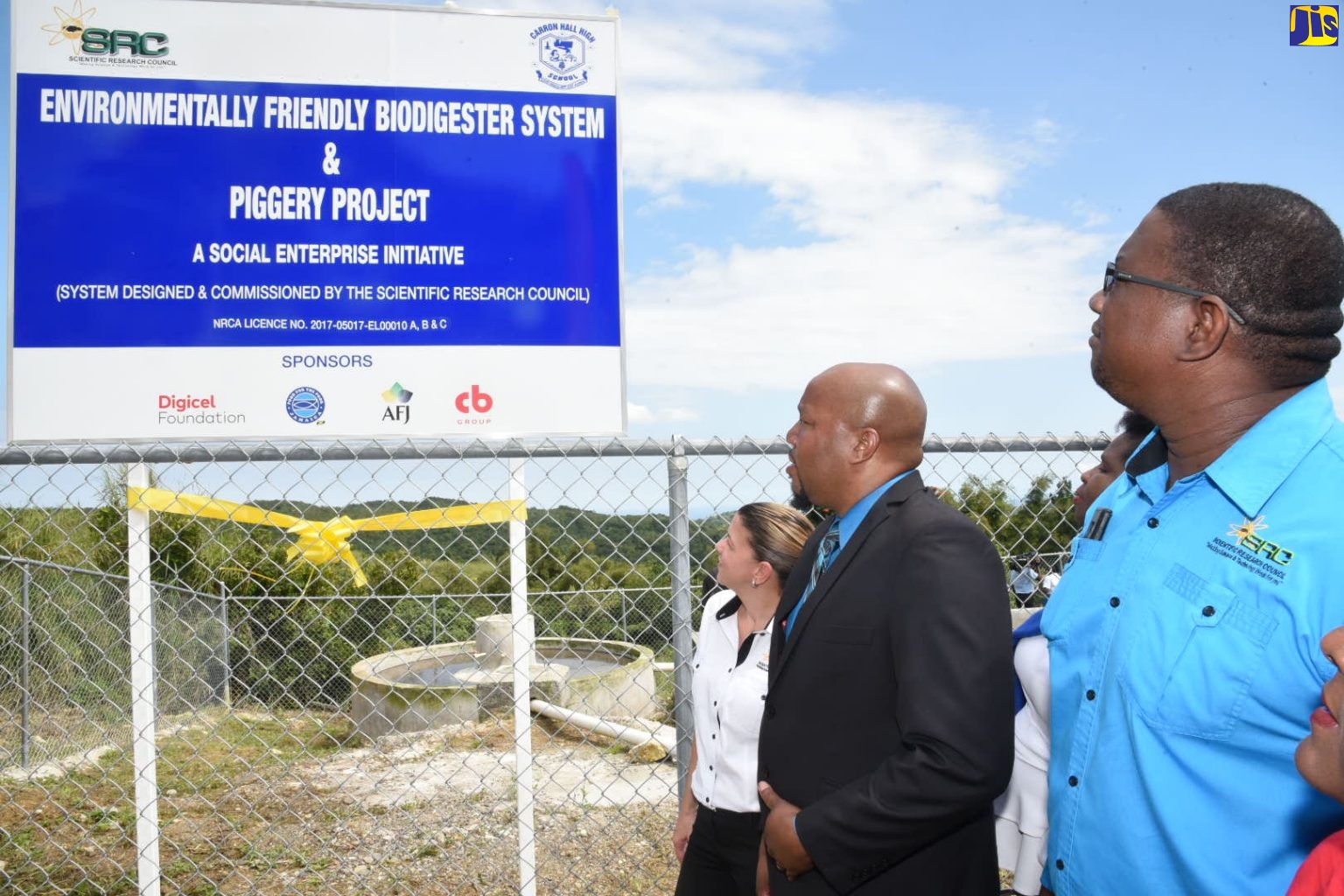Carron Hall High School Gets Biodigester
By: , February 6, 2019The Key Point:
The Facts
- The biodigester was constructed to the dimension of 20 cubic metres, a measurement that will effectively treat the waste of approximately 30 animals housed in the piggery.
- The waste treatment process will also be used to teach students how to produce organic fertiliser and irrigation for crops, and create energy in the form of biogas, which will be utilised as fuel.
The Full Story
Carron Hall High School in St. Mary now has one of Jamaica’s premier biodigesters, donated by The Scientific Research Council (SRC), in partnership with Digicel Foundation, Food For the Poor Jamaica, American Friends of Jamaica and Caribbean Broilers Group Limited.
The biodigester was constructed to the dimension of 20 cubic metres, a measurement that will effectively treat the waste of approximately 30 animals housed in the piggery.
The waste treatment process will also be used to teach students how to produce organic fertiliser and irrigation for crops, and create energy in the form of biogas, which will be utilised as fuel.
Both the biodigester and the piggery were officially handed over on Tuesday (February 5) to the school by the donors.
Coordinator of the Science and Technology Education Unit, SRC, Amanda McKenzie, said the by-products of this unit are expected to reduce the overall operational costs of the school.

“Carron Hall High School was chosen, as it demonstrated the potential to sustainably operate and manage the waste-treatment system. The school already had a farm with the possibility for expansion, as well as the required infrastructure and technical support,” Ms. McKenzie said.
“The school has ceased the application of inorganic fertilisers and is now utilising the treated water for the irrigation of crops on the school’s farm. This has lowered the input cost for crop production. The meal options available to students have now increased, as pork is now added to the canteen’s lunch menu. Income is generated from the sale of meat and it is anticipated that in the future, animal and soil conditioners will be added to this list,” she added.
Ms. McKenzie said it took two years and five months to start and culminate the waste treatment system and piggery.
Agricultural Science Teacher, Carron Hall High School, Cedena Vickers Forrest, said this new system will assist her greatly and other educators at the school to teach the subjects of Agricultural Science, Biology, Environmental Science, Construction Technology, Business Management and Entrepreneurship, in a much better and practical way.
“As a teacher, I believe in all the technology that we can put in, so that our students can have state-of-the-art agriculture. They can now see first-hand how things are done in terms of proper pig care management, how to be environmentally safe and how to achieve sustainable agriculture,” Mrs. Vickers Forrest told JIS News.
“This system has benefited us. We are now producing crops using the waste water from the biodigester, which is cheaper and cleaner [and] more beneficial to the environment. We are currently planting Irish potato to meet this season. We also do melons. We do cash crops such as pak choi, lettuce, cabbage, callaloo, sweet peppers and hot peppers. As a school, we believe if our students see that agriculture can make money, then they will want to be in agriculture, and so we are always producing and getting our students involved in what we do,” she added.
Following the handover, some students told JIS News that they are elated about the new system.
Grade-11 student, Khalilah Simon, said the system has resulted in more female students becoming empowered to seek careers in agriculture, which was once a male-dominated area of study.
“Now, we female students are focusing on slaughtering with poultry, and artificial insemination. We are now learning to prevent inbreeding, because this will cause the pig’s nutrients from the meat to decrease over time. It is good because it is part of our SBA and it will help us to understand more, and this might be a CXC question,” Khalilah told JIS News.

Students, Javaughn McDonald and Leon Laroique, who use the water from the biodigester to water their crops, said they are happy with the new system.

“It helps us out during the drought time and with the watering of our crops. We have reaped pak choi already, and it’s nice. The whole experience is fun. It helps us in getting a lot more knowledge in terms of what to do and when to do it,” Javaughn said.
“I didn’t know how to do any of this – planting and reaping – but I now know how to do all of that, and with the biodigester system, it helps us to learn about irrigation for our scallion, cabbages and pak choi,” Laroique noted.
Agriculture Manager, Food For The Poor Jamaica, Othniel Carby, said when they were called on to financially and physically help the school with the establishment of the biodigester and the piggery, it was a no-brainer.
“I know this will be a significant boost to the school’s scientific syllabus, while providing an additional revenue for the institution. The reality is, agriculture is not as developed as it should be in many communities and institutions, simply because the resources are not always affordable or accessible. Food For The Poor is pleased to be a part of this project by constructing a piggery unit and a store room, as well as providing the pigs,” Mr. Carby said.
Food For The Poor is currently constructing a poultry and slaughter house for the school. This is expected to be completed by next month. The charity’s total construction cost amounts to approximately $2 million.
Digicel Foundation donated approximately $3 million for the construction of the waste treatment system, while the American Friends of Jamaica committed another $1.5 million. Caribbean Broilers have offered to train the project administrators at the school.




